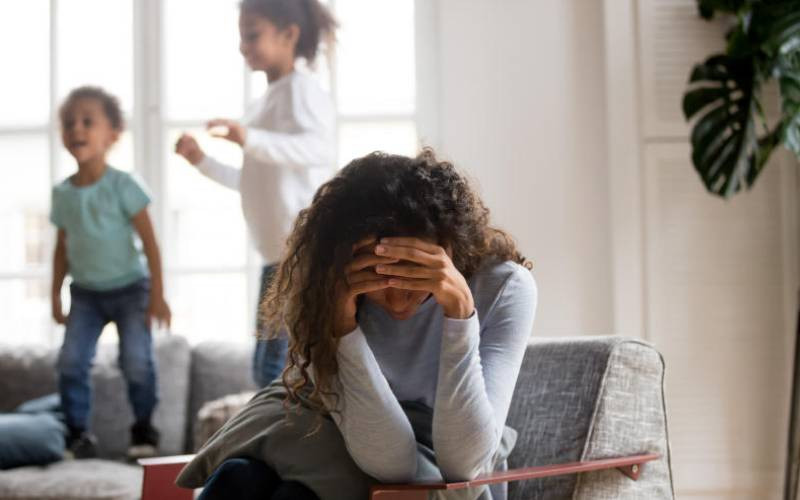
The demise of a loved one is traumatic and generally elicits deep grief responses. The mental health of a mother is affected by a wide range of life experiences with the loss of a child among the most hard-hitting of situations.
Without diminishing any grief response, the loss of a child has unique challenges to the mother no matter the age.
The natural order is that no parent should burry their child; it is the expectation of many that the natural order upholds.
Memories are hard to let go
What hurts the most is that mothers feel responsible for the wellbeing of their children from as early as conception.
From pregnancy to breastfeeding, there exist energies that have psychological, biological and social interactions that grow the bond between a mother and her child.
When a mother loses a child, she not only misses a person she loves but also suffers the memories that are difficult to let go. Some women do find ways to cope and live with the loss while others find it really difficult to find meaning in life.
In fact, a study conducted in 2008 found out that the recovery from grief may not be determined by the amount of time since the death.
According to the UNICEF report on stillbirths, Kenya’s statistics are at 21 deaths for every 1000 live births, ranking 3rd in East Africa. Even after 18 years of losing a child, it was observed that parents still manifested depressive episode, more health issues and to some extent, marital disruption.
“The kind of tired that sleep can’t fix”
Mental trauma can trigger physical symptoms. The loss of a child has been associated with long term mortality caused by illness such as cancer for mothers.
It is presumed that such conditions develop due to stress, a weakened immune system, and poor health behaviors that could accompany the grieving process.
Mothers with a strong sense of purpose in life or those who had an opportunity to say goodbye have been observed to experience lower grief responses.
Scientists from the Department of Psychiatry of the University of Nairobi published a research paper on traumatic grief in Kenyan bereaved parents following a school fire tragedy. The findings highlighted possible explanations for the high levels of mental trauma after the loss of a child.
1. The child carried hope for the future for themselves, parents and their families. Parents and most especially mothers dedicated time and material investment to secure a good future. Losing them meant the lives of their parents became hopeless.
2. Children are considered as continuity for future economic wellbeing of their families.
3. When the nature of death is so horrific to an extent that there is failure of identification, mothers find it harder to find closure.
Parents who lost children through the school fire tragedy reported to have experienced irritability, loss of appetite, numbness, intrusive thoughts, sleep disturbances, loss of memory, social isolation, reduced libido, changes in monthly period, depression and paranoia.
What the loss of a child means for your marriage
A Joshua Krisch publication indicates that losing a child may strengthen or ruin families. The consequences heavily depend on the status of the marriage before the tragedy.
Even though it is important to note that the loss of a child does not lead to divorce, it may make a struggling marriage worse and a deeply connected one even better.
A troubled marriage may create situations where one spouse blames the other for causing the death or acting in a way to hasten the death. Such a notion is almost impossible to get over.
Additionally, grief can impair one’s ability to fully perform their duties in maintaining a stable relationship.
When you have other children
According to a 2004 research conducted in Kenya, the intensity of loneliness after bereavement was more pronounced in mothers than fathers despite having other children.
There is always an element of risk of neglect on other siblings when a mother has to focus more attention to a terminally ill child.
It can be troubling for these children when they are handed more responsibilities yet their needs are not met.
Support system
A grieving mother may suffer depression and long term effects of stress that may impair their ability to perform their duties optimally.
A loss of such magnitude needs present and supportive human interaction to help cope. Joining a support group could also help in processing grief caused by the loss of a child.
Organizations such as Still a Mum offer respectful child loss bereavement support through one on one counseling sessions—physically or online-- or group therapy.
 The Standard Group Plc is a multi-media organization with investments in media
platforms spanning newspaper print
operations, television, radio broadcasting, digital and online services. The
Standard Group is recognized as a
leading multi-media house in Kenya with a key influence in matters of national
and international interest.
The Standard Group Plc is a multi-media organization with investments in media
platforms spanning newspaper print
operations, television, radio broadcasting, digital and online services. The
Standard Group is recognized as a
leading multi-media house in Kenya with a key influence in matters of national
and international interest.










